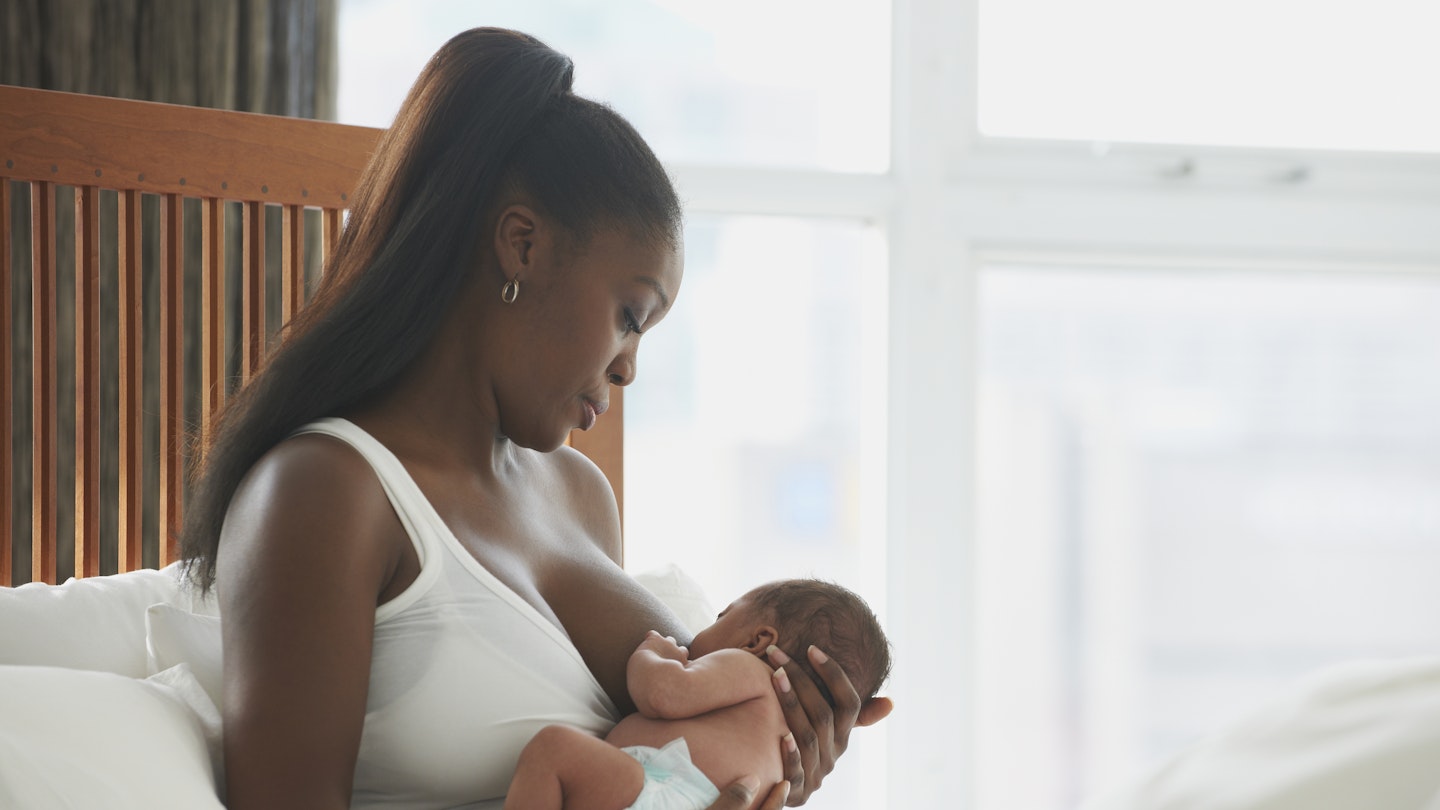Throughout your pregnancy it's important that you're providing your body and your baby with the correct vitamins and nutrients that it needs to keep you both as healthy as possible.
But it's also a good idea to continue this mindset when you're breastfeeding. It's believed that certain foods can help boost your milk supply. Babies triple in weight in their first year and double in length - and all that growing needs some fuel!
So, it's important for breastfeeding women to be eating the right foods, and avoiding those that could disrupt breastfeeding.
Are there any foods I should avoid when breastfeeding?
If your baby is sensitive to certain foods or drinks, you may need to avoid them. This is because traces of what you eat and drink can pass through to your breast milk, affecting your baby.
It's important to listen to your baby when you're breastfeeding - there will be some tastes she loves (a lot of babies will feed for longer when they taste garlic for example!) and others she won't like (a lot of mums find spicy food or citrus fruits unsettle their babies and make them harder to feed). That said, the following foods should be avoided as part of your breastfeeding diet:
Alcohol
According to the NHS, the occasional drink when you're breastfeeding is ok, but you should try to avoid alcohol as much as you can. These days there are some great non-alcoholic drink options.
If you do drink whilst breastfeeding, the NHS recommends waiting a few hours before feeding your baby. An alternative option is to pump before you drink alcohol. If you do miss a feed, make sure you still express so that your breasts don't become engored and sore.
Caffeine
Try and avoid more than two cups of coffee a day when breastfeeding as this can increase the caffeine levels in your milk and be passed on to your baby, which can make your baby restless and keep them awake (which is the last thing you want!)
Also bear in mind that it's not just a mug of tea or coffee that contain caffeine - chocolate, energy drinks and certain soft drinks (such as cola) also count towards the amount of caffeine in your system.
Fish
Although fish is good for you and your baby when breastfeeding, you should have no more than two portions of oily fish per week. Fresh mackerel, sardines, trout and tuna all count as oily fish.
You should also limit your portions of fish with high levels of mercury, such as swordfish.
Is my baby at risk of developing food allergies when breastfeeding?
In fact some babies are born with allergies, certain allergies can be passed on to your child when they're still in the womb. Sometimes this is genetic, while other allergies come completely out of the blue.
Your baby may show a reaction to foods you eat when breastfeeding, so it's important to be aware of symptoms.
CMA, lactose intolerance and breastfeeding
Cows' milk allergy (CMA) is one of the most common childhood food allergies. While it's more common when first infant formula milk is introduced or when your baby starts eating solids, it can happen while breastfeeding.
Symptoms of CMA include:
-
skin reactions: such as a red itchy rash
-
swelling: lips, face and around the eyes
-
tummy ache, vomiting, colic, diarrhoea or constipation
-
runny or blocked nose
-
eczema
If you think your baby is showing symptoms of CMA, excluding dairy from your own diet can help. This can also help if your baby shows signs of lactose intolerance, such as diarrhoea or vomiting.
However, if you do exclude dairy make sure you're getting enough calcium from other sources. Nutritionist Dr Harriet Holme says, "There are lots of non-dairy alternatives high in calcium, such as tofu, pulses, dried fruit, and fish that have edible bones, such as sardines or tinned salmon are also a great source of calcium. When you choose a plant-based milk, ensure that it meets your nutritional needs, especially calcium and iodine."
Peanuts and breastfeeding
Unless you're allergic to peanuts, there's no evidence to suggest you should avoid them (or any peanut based foods like peanut butter) while breastfeeding.
Most children that have a food allergy will have experienced eczema during infancy. The worse the child's eczema and the earlier it started, the more likely they are to have a food allergy.
Talk to your doctor if you're worried that your baby is showing signs of an allergic reaction, or intolerance.
